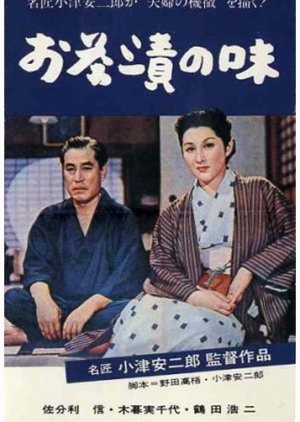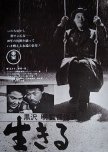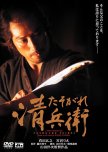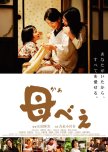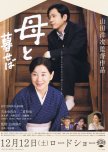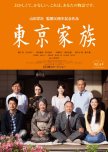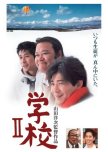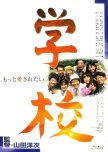
This review may contain spoilers
"Everyone has something that's been ingrained"
Director Ozu once again took on a strained marriage with a shrewish wife and docile husband, this time succeeding for me over "What Did the Lady Forget?" which had a similar theme. He'd wanted to film this during the war, but the censors shot him down and he had to wait 15 years to bring it to the screen. I'm glad he held steadfast.Taeko and Mokichi were an arranged marriage and have been together for several years. Taeko comes from a higher social class and calls her husband "Bonehead" to her girlfriends. His casual social manners and delights grate on her nerves. She has a cook and housekeeper making her a woman with nothing to do except gossip and hang out with her friends. All she wishes is for him to go away never realizing how good she has it. Mokichi is a diligent worker and respected at the office, but he doesn't live there. He's kind to others and to Taeko no matter how rude she is.
The match that lit Taeko's powder keg turned out to be her niece. Her sister had arranged a marriage for Setsuko with the son of a prominent family. Modern Setsuko steadfastly refused to participate in the "primitive" arrangement causing consternation for Taeko, especially when it looked like Mokichi was taking the 21-year old's side. At that point it was war and she refused to speak to her husband unless it was to berate him for pouring his miso soup on his rice to eat "like a dog". With the dissatisfaction she felt in her own marriage, the possibility of Setsuko being forced into an arranged marriage only magnified her pain.
Everything turned around when Mokichi had to take a short notice business trip to Uruguay and Taeko refused to show up at the airport to see him off. In a time when this was an event, all of their friends did show up to send her husband off. As she came home to the empty house, the silence and his absence sank into her. She'd gotten her wish but her body language showed it might not have been what her heart really wanted.
Mokichi returned that night due to plane trouble. She asked what he wanted to eat and he requested Ochazuke, green tea over rice. Ozu created an oddly intimate and endearing scene as the couple go to the kitchen together and step by step put the dish together, neither familiar with the kitchen. Each addition and discovery in the kitchen as they prepare the dish becomes a revelatory experience for the two as husband and wife. Taeko who has been fueled by bitterness and rage has softened. Mokichi's gentle presence no longer a blight but a balm. His kindness and acceptance of her seems to finally sink in and soothe her, his reliability and constancy finally acknowledged for what it is---love.
As I stated, this story was one that Ozu held onto for over a decade. It's also interesting to note that one of his favorite meals was green tea over rice. In the film the two young people eat ramen and wax poetic about it, another favorite of his. The sets and composition of the frames were classic Ozu, intricate care given to every prop and shot. As he did, much of it was filmed from the mat so to say, with only one annoying thing for me-often the characters would look directly into the camera to speak when they were having conversations, and I found it highly distracting. Instead of playful, heated or intimate discussions, suddenly they reminded me it was a film by looking at me to speak.
Kogure Michiyo had the perfect face for this Japanese Kate (Taming of the Shrew). She overflowed with anger and resentment with only her husband to blame, unable to look anywhere else until it was so quiet she finally turned inwards. She also had help from a girlfriend, the kind every girl needs, who called her on her brutish behavior. Kogure went from raging 4 alarm fire to beautiful golden ember. Saburi Shin gave the warm performance of a man who took life and his wife as they came, always seeking comfort from the common.
The Flavor of Green Tea Over Rice had comedic and even exasperating moments. Ozu definitely made the married couple earn their happily ever after and I believe they finally found a way to relate to each other with kindness and understanding. As a viewer who became exasperated with Taeko at times, Ozu caused me to earn the enjoyment I finally received from this comfort food of a film.
"I've finally understood a sense of ease that brings greater comfort, without reservation or appearance." (Taeko) The husband and wife is the flavor of green tea over rice. (Mokichi)
10/12/22
Was this review helpful to you?

The trick is a light touch.
I saw this comment on Letterboxd and it explains the beauty of this filmThere’s a value in simplicity, a happy-sad acceptance of basic pleasures as pleasures nonetheless. Ozu uses his own light touch to make this much obvious in his peppering of choice little movements, a repeated note or a symmetry in the rhythm to really drive home the cadence of his bittersweet melody. Parallels of the old and the new strike a complementary tone to the content and the indifference, as reflection of the past blend visions of what could be, and even empty corridors round out a harmony heard half-way, in happy-hushed hallways. It’s almost too easy to label this approach the same unassuming, gentle compromise as the very dish it's named after. As a figuration for marriage itself, The Flavor of Green Tea Over Rice is as sound as they come. It’s the taste of simplicity, yes, but also a gesture of their meeting in the middle, a soft-spoken pact that love can come at last sight.
As an exercise in melodrama, I’m less convinced. Ozu was never afraid to bare teeth, and the dynamics at play give him plenty to chew on. Certain scenes had me sold on the belief that this was his social satire as disguised in clothing of the home family drama, in its challenges of culture divides and exposing of societal hypocrisies, warts and all. And yet, there’s one too many smiles to make the bite ever truly sting, as the piece contorts from seeming damnation to gentle epiphanies, while gentle jabs at human frailties are balanced by a soothing sympathy for human conduct. As mirrored in the slightest of camera-tilts, Ozu manages a soft-blow knockout in the most unassuming of digressions, minor-key enjoyment epitomized and granted wings. With a grace note so abrupt it left me gasping for air, it’s as if we’re reminded that the smallest moments are often the simplest pleasures.
Was this review helpful to you?

